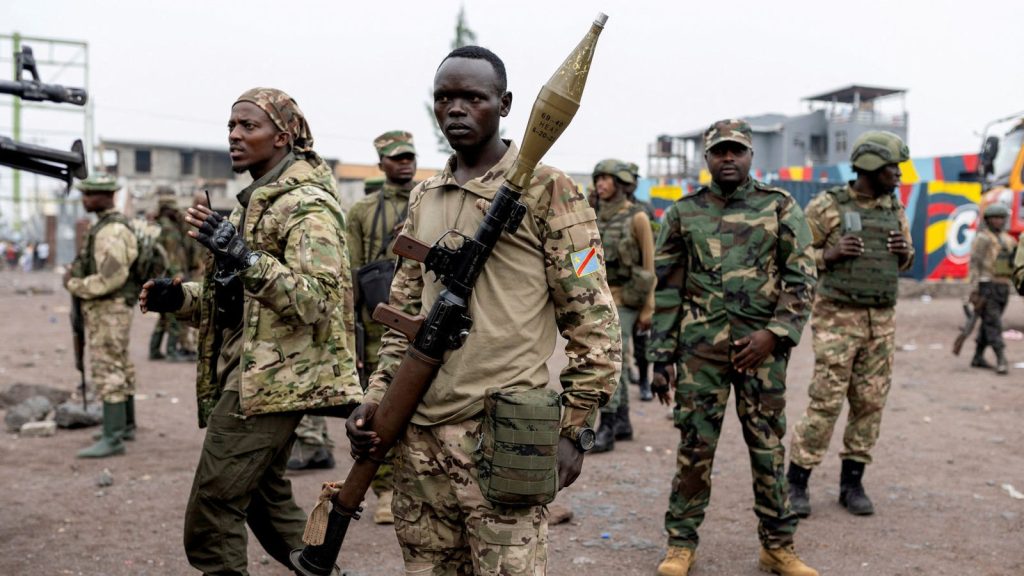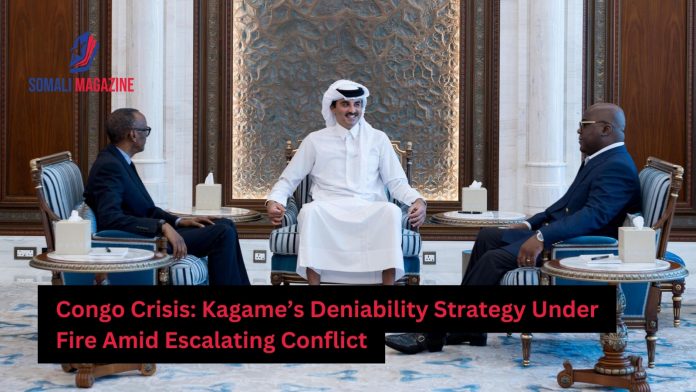Facebook Twitter Instagram Somali Magazine - People's Magazine
The Democratic Republic of Congo (DRC) finds itself back at a critical impasse as the ongoing conflict in its eastern provinces continues to escalate. Despite numerous peace initiatives, including the Nairobi and Luanda processes, tensions between the DRC government and the Rwanda-backed M23 rebel group remain unresolved. Rwandan President Paul Kagame’s recent statements have reignited controversy, with critics accusing him of employing a strategy of plausible deniability to deflect responsibility for Rwanda’s alleged role in the crisis.
The conflict, which has displaced over 400,000 people in the past year, has seen M23 rebels consolidate their hold on key territories in North Kivu province. The DRC government has repeatedly accused Rwanda of providing military and logistical support to the group, a claim Kigali denies. Kagame has framed the conflict as a security concern for Rwanda, citing the presence of the Democratic Forces for the Liberation of Rwanda (FDLR), a militia group linked to the 1994 Rwandan genocide, in eastern Congo.
During a recent summit of East African Community (EAC) leaders, Kagame criticized the international community’s approach to resolving the crisis, describing it as disorganized and ineffective. He also called for direct political dialogue with M23, a stance that has drawn sharp criticism from Congolese officials. “Rwanda’s narrative seeks to legitimize M23 as a political actor while downplaying its role in destabilizing the region,” said a senior DRC government official.
Kagame’s statements have been met with skepticism, with analysts pointing to inconsistencies in Rwanda’s official position. While the DRC and other stakeholders have emphasized the need for an immediate ceasefire, Rwanda’s focus on security guarantees and dialogue with M23 has raised questions about its commitment to peace. Critics argue that Kagame’s selective framing of the conflict allows Rwanda to maintain plausible deniability while pursuing its strategic interests in eastern Congo.
The humanitarian impact of the conflict has been devastating. The United Nations estimates that over 6.6 million people are in need of urgent assistance, with many living in overcrowded camps lacking basic services. The violence has also disrupted agricultural production and trade, exacerbating food insecurity in a region already grappling with the effects of climate change.

Efforts to address the crisis have been further complicated by divisions among regional and international actors. While the EAC and the Southern African Development Community (SADC) have called for a coordinated response, disagreements over the role of external forces have hindered progress. The deployment of a regional force to stabilize eastern Congo has faced delays, with some member states expressing concerns about its mandate and funding.
The DRC government has called for greater international pressure on Rwanda to end its alleged support for M23. “The world cannot turn a blind eye to the suffering of the Congolese people,” said President Félix Tshisekedi during a recent address to the United Nations General Assembly. He urged the international community to hold Rwanda accountable and support efforts to restore peace and stability in the region.
As the crisis deepens, the focus remains on finding a sustainable solution that addresses the root causes of the conflict. This includes tackling issues such as resource exploitation, governance deficits, and ethnic tensions that have fueled violence in eastern Congo for decades. Analysts warn that without a comprehensive approach, the region risks sliding further into chaos.
The Congo crisis serves as a stark reminder of the complexities of regional conflicts and the challenges of achieving lasting peace. As Kagame’s strategy of deniability comes under scrutiny, the international community faces a critical test in its ability to navigate these dynamics and support the people of Congo in their quest for stability.

